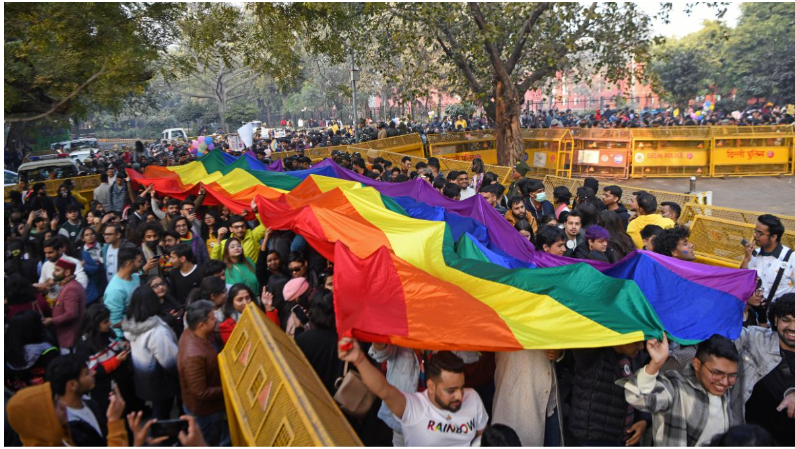Same-Sex Marriage: On Tuesday, the Supreme Court of India rejected the legalization of same-sex unions and conducted a detailed investigation of the Special Marriage Act of 1954’s provisions.
Same-sex marriage Verdict: The Supreme Court of India issued its long-awaited decision on same-sex marriage on Tuesday. In a landmark hearing, the court delved deeper into the Special Marriage Act’s 1954 provisions to thoroughly examine the issue, which has convergence and interrelationship with homosexuality, and rejected petitions to legalize.
During the months of April and May, a five-judge panel presided over by Chief Justice of India DY Chandrachud and made up of Justices Sanjay Kishan Kaul, S Ravindra Bhat, Hima Kohli, and PS Narasimha began hearing the petitions asking for the Special Marriage Act of 1954’s right to marry for members of the LGBTQIA+ community. On May 11, the panel reserved its decision.
ALSO READ: Congratulations On This Historic Accomplishment: The Rajya Sabha Passed The Women’s Reservation Bill
The Special Marriage Act of 1954: Definition
An Indian statute known as the Special Marriage Act (SMA), passed in 1954, creates a legal foundation for interfaith or intercaste unions. The relevant personal laws in India where weddings can be registered are the Hindu Marriage Act, 1955, Muslim Personal Law Application Act, 1937, or the Special Marriage Act, 1954.
The Special Marriage Act makes it possible to register weddings, which grants the union legal recognition as well as a number of benefits and protections under the law, including social security benefits, succession rights, and inheritance rights.
It forbids polygamy and deems a marriage null and void if either partner was married to a person who was still living at the time of the union or if one of them was incapable of providing legitimate consent to the union because of mental insanity.
why the Supreme Court declined to legalize same-sex unions
A five-judge Constitution Bench of the supreme court voted 3:2 against giving same-sex marriages constitutional status. The CJI came to the conclusion that the Special Marriage Act (SMA) 1954 could neither be repealed nor amended to include same-sex partners within its purview. The top court further stated that it is up to the state legislatures and Parliament to draft relevant laws.
The petitions’ major defense was that marriage is a fundamental human right. However, the five judges on the bench unanimously concluded that the Constitution does not grant anyone the fundamental right to marry.
Indian Law Regarding Same-Sex Marriages

The right to marry is acknowledged as a statutory right rather than a fundamental or constitutional one in the Indian Constitution. Although there are several statutory rules that govern marriage, it has only been through Supreme Court of India rulings that it has come to be recognized as a basic right. According to Article 141 of the Constitution, this pronouncement of law is obligatory on all courts in India.
Due to the strict definition of gender in the legislation, same-sex marriage is now not lawful in India. Marriage is defined under Indian law as a union of a man and a woman.
PHOTO SOURCE: Google.com
ALSO READ: In India, Women Spend 7 Hours A Day On Housework While Males Spend Only 3 Hours




































